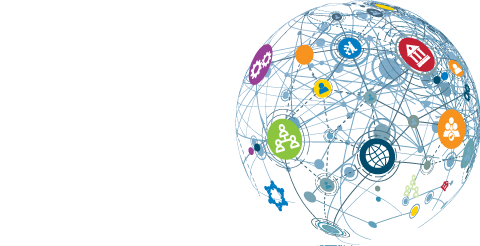
The UNESCO-UNEVOC International Centre: Who We Are | What We Do | Working With Us | Get in Touch
The UNEVOC Network: Learn About the Network | UNEVOC Network Directory
For Members: UNEVOC Centre Dashboard
Thematic Areas: Inclusion and Youth | Digital Transformation | Private Sector Engagement | SDGs and Greening TVET
Our Key Programmes & Projects: BILT: Bridging Innovation and Learning in TVET | Building TVET resilience | TVET Leadership Programme | WYSD: World Youth Skills Day
Past Activities: COVID-19 response | i-hubs project | TVET Global Forums | Virtual Conferences | YEM Knowledge Portal
Our Services & Resources: Publications | TVET Forum | TVET Country Profiles | TVETipedia Glossary | Innovative and Promising Practices | Toolkits for TVET Providers | Entrepreneurial Learning Guide
Events: Major TVET Events | UNEVOC Network News
 |  |
Dear readers,
One year into the COVID-19 pandemic, strategies to improve distance learning and build digital capacities continue to be a key focus in the education sector. The surge in the demand for digital skills has reinforced the importance of providing relevant training and support for teachers and students throughout the learning process.
In addition to moving digitalization to the top of the agenda, the pandemic has exposed a growing digital divide and persistent inequalities. Nearly one-third of the world’s students – 463 million children globally – were unable to access remote learning, mainly due to a lack of online learning policies or equipment. Labour markets have also felt the harsh effects of the unprecedented disruption, with the highest employment losses recorded in the Americas. As is too often the case, the vulnerable and disadvantaged have been the most severely impacted.
To help alleviate the short, medium and long-term effects of the global crisis, UNESCO-UNEVOC has launched a COVID-19 response project. The project supports TVET institutions in providing targeted skills training to meet urgent demand, upskilling to build the digital capacities of staff and peer learning to share lessons learned throughout the pandemic. These programmes are all geared towards strengthening the responsiveness, agility and resilience of TVET institutions for the post-COVID-19 era. Find out more about the project and our activities to promote digitalization in TVET in this issue of the UNEVOC Quarterly.
Best wishes from the UNESCO-UNEVOC team
Artificial intelligence has produced new teaching and learning solutions that are now undergoing testing in different contexts. In addition to its impact on the education sector, AI is substantially altering labour markets, industrial services, agric ...
Enhancing TVET's contribution
Climate change is an ongoing process that, at the current pace of such activities, cannot be avoided. Tools have been proposed to deal with climate change focus on adaptation and mitigation. Strengthening national and international awareness of and c ...
A practical guide
This guide is also available in an [https://unevoc.unesco.org/elg interactive online version]. You can view an introductory video on the practical guide [https://youtu.be/tuY58QuidMg here].
Technical and vocational education and training (TVET) in ...
Science, technology, engineering and mathematics (STEM)-related technical and vocational education and training (TVET) has a potentially significant role to play in providing the skills and competencies required to support innovation, productivity an ...
Subscribe here: https://unevoc.unesco.org/home/register